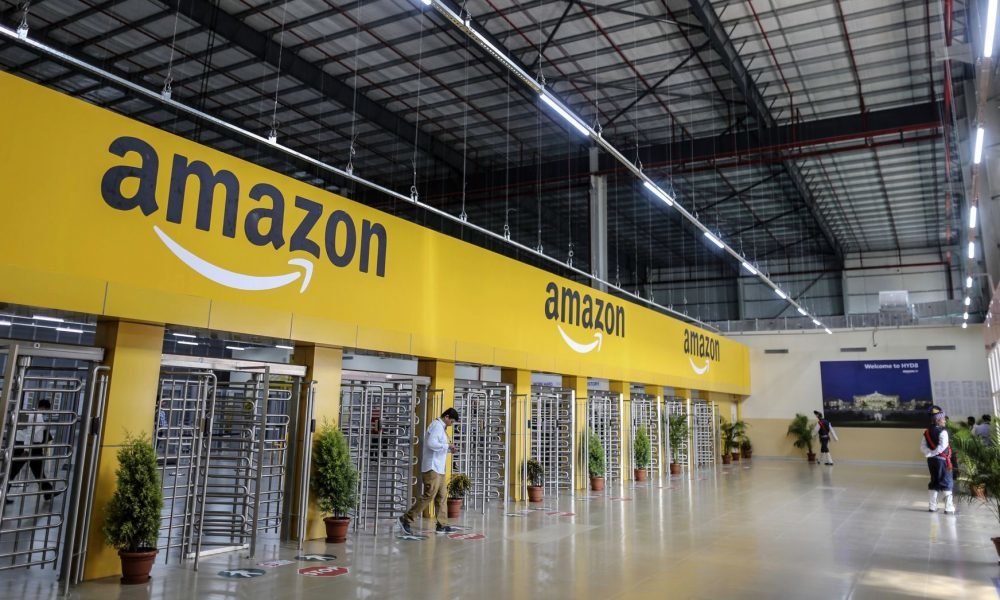
Supreme Court Holds Case as Amazon Plans TAX in Pennsylvania

Amazon is about to comply with a new legal law passed by the Pennsylvanian lawmakers. The law will enforce taxes on every sale being shipped to the customers in their states of residence. In 2017, the lawmakers in Pennsylvania made and approved a law advocating for tax collection on every sale by online stores.
Implementing a New Tax Enforcement Program
Although many other states in the U.S have started practicing the law, the Supreme Court sitting in America may foil their plans due to an ongoing court case. Going by this latest development, Amazon is about to follow it up by implementing a tax enforcement program in Pennsylvania, which is one of its largest profitable states and this program will make Pennsylvania the second city and state where the online retail giant will continue its Marketplace Collection of Tax. The first state is Washington.
Third-party traders have been duly informed about Amazon’s new scheme that will soon commence on placing a tax on every sale which will be shipped to Pennsylvania. Confirming this pending policy to clients and newsmen, a representative for Amazon said that the retail company would begin to estimate, receive, and dispatch tax on sales for all goods that will be packaged for shipment to clients based in Pennsylvania. The information was posted on Amazon’s general portal for traders and investors, a website page where only merchants can access.

The new program will be embarked upon in the state of Pennsylvania as the second state that will take part in Amazon’s scheme known as “Marketplace Collection of Tax.
The Senate in Pennsylvania recently passed and mandated a law in 2017, asking internet stores to place and receive sales tax, making the playing ground for physical retailers to equalize with online stores. Amazon has been compelled to fit into this latest legalized movement to enforce strict rules on internet retailers since more sales and businesses are shifting to the online sphere, while more and more states are looking for ways to get back their revenues through taxes.
Dating back to as far as 1992, sales which were carried out through the internet, were not disposed to tax, except the seller took the goods in person directly to the customer in his or her state. According to a report released by The Government Accountability Office in the latter part of 2017, it was disclosed that an estimated huge revenue of about $13.2 billion could have been made by the local governments and states that same year if taxes from foreign sales were calculated.

Demanding the Collection of Taxes
This latest law passed by the Pennsylvanian government demands that tax on sales should be collected, whether sellers take orders to their customers’ base or not, or whether a face-to-face transaction was involved. For instance, when a small boutique owner who is resident at Atlanta ships a package of wears to a customer living in Philadelphia, the seller must place a charge of 6% as sales tax, which must be paid by the customer.
Until this moment, the internet retailer has only received taxes placed on goods sold directly by it, but it has not bothered to meddle in the businesses of its affiliated merchants using its platform. They were independent from Amazon to decide on their own ways of collecting taxes as it concerns them.
Apart from Washington and Pennsylvania, other states such as South Dakota and Colorado have also approved the same laws, mandating the payment of taxes on sales by online stores.
More statements from Amazon posted on the trading central portal says that salespersons will not need to make any move or should not bother to remit any levies to the company for the use of its automated service. It was also stated that at the moment, there is no alternative for them to back out or limit transactions to certain states where tax laws are not enforced.
At present, it cannot be decided yet if more states will also take part in the new tax laws because only the Supreme Court in the U.S can determine that. From April, the Supreme Court will sit to preside over arguments from authorities in South Dakota who are debating the issue, saying that the 1992 law is outdated and should no longer be considered because of the current economic state.
More in Advisor
-
`
Streaming Giant Netflix Faces Yet Another Challenge
In the ever-evolving landscape of streaming entertainment, Netflix, once the unchallenged king of digital content, now faces a complex puzzle beyond...
December 1, 2023 -
`
Signs You Should Quit Your Current Job & Move On
You Don’t Feel Comfortable at Work Imagine spending the majority of your waking hours in a place where you feel uneasy,...
November 20, 2023 -
`
How to Adjust and Renew Your Portfolio
Investing in the financial world is like navigating an ever-changing landscape—constantly evolving, always shifting. The key to staying on track? Regularly...
November 18, 2023 -
`
Dr. Dre’s Divorce With Nicole Young: A Closer Look
When the beats of old-school hip-hop start bumping, Dr. Dre’s name reverberates in fans’ minds worldwide. Born as Andre Young, this...
November 12, 2023 -
`
Why Branded Content Is the Best Way to Connect With Your Audience
Have you ever found yourself deep in a compelling article or engrossed in a video series, only to later discover that...
November 5, 2023 -
`
Why the Gender Pay Gap Could Be Getting Worse | New Research Findings
At a time when women are making significant strides in various professional arenas, a new report throws light on a trend...
October 28, 2023 -
`
What Is a Bull Market and How Can Investors Benefit From One?
In finance, the term “bull market” is frequently used to describe a period of optimism, rising asset prices, and investor confidence....
October 19, 2023 -
`
A-List Power Couples Where the Women Make More Money
In an era of shifting gender roles and evolving definitions of success, it’s increasingly common to find celebrity couples where the...
October 15, 2023 -
`
Massive Price Cuts: Tesla Only Witnesses ‘Modest’ Sales Gain in China
Cutting Down Prices, But Not Cutting the Mustard? Summer 2023 brought with it a promise of sunshine and relaxation. For Tesla...
October 8, 2023















You must be logged in to post a comment Login